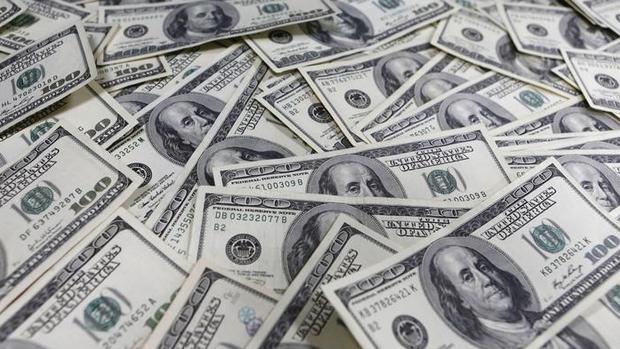John Andrist: You Can Buy Anything You Really Want

One hundred dollar notes are seen in this photo illustration at a bank in Seoul January 9, 2013. Japan's drive to weaken the yen poses a threat to big South Korean exporters such as Hyundai Motor, but Koreans may benefit as the new president aims to shift policy away from supporting big exporting conglomerates. The yen's tumbling by some 10 percent to the dollar in the December quarter at a time when the won has been on the rise sent the shares of big exporters falling and raised concerns among the policymakers in Seoul. Picture taken January 9, 2013. To match Analysis KOREA-CURRENCY/ REUTERS/Lee Jae-Won (SOUTH KOREA - Tags: BUSINESS) - RTR3CGGO
This is a quiz. What do all these things have in common? Sugar, fossil fuels, petroleum, pipelines, abortion, alcohol, obesity, tobacco, guns, drugs, pornography, climate change.
The answer is all of them are things that a large segment of Americans believe are a scourge that must either be sharply reduced or eliminated.
How long is your list? Mine has six of the 10. I will just betcha, however, that you have an opinion on every one of them.
Each of us could easily add others. Quite likely the length of your list can be attributed to your activism and passion.
Most of them also have the propensity for making us want to demonize the supply line or the facilitator as much or more than the user.
We seem to forget that in a free market economy there will always be somebody willing to supply. Somebody must still be making strychnine.
[mks_pullquote align=”left” width=”300″ size=”24″ bg_color=”#ffffff” txt_color=”#000000″]We seem to forget that in a free market economy there will always be somebody willing to supply.[/mks_pullquote]
I started to think about this after reading that a non-profit by the name of Praxis Project is initiating a lawsuit accusing Coca Cola of down-playing the health risk of sugary drinks.
Not so long ago another lawsuit was initiated against ExxonMobil by the Justice Department, accusing them of down-playing the danger of global warming. So with that one we all get to pay for both the prosecution and the defense.
I’m thinking this may become a more common practice, replacing what is now known as protesting.
All it takes is a group of rich people with strong social engineering desires, who have this belief that they can change people by fighting the supply line for whatever they want to shut down.
There is a growing passion in this country to reduce gun ownership and limit accessibility. But the murder capitol of the country is Chicago, which has the nation’s most restrictive gun ownership rules. Supply will always find demand.
We tried to totally shut down supply with prohibition, then decided the cure was worse than the disease.
The anti-smoking folks have played a significant role in reducing tobacco use, but I think most of its success is the work to educate us about the medical dangers of smoking and the assistance they offer to help people overcome addictions. Demonizing tobacco companies and their growers? Not so much.
Likewise, our efforts to reduce the use of harmful drugs has been mostly centered on “getting” the sellers and distributors. Since drugs are mostly not legal we have to try root out suppliers, but it seems to me that the reduction in methamphetamine is mostly a result of the growing awareness of its destructive nature, not our enforcement efforts. The supply is still there.
Alas, instead of cleaning up our addictive habits we mostly turn to other equally dangerous drugs. We are a class act in self-destruction.
The problem of taking away the supply line or punishing the provider is like pinching a balloon and watching a bubble pop up someplace else.
If we want to halt pipelines and drilling for oil, we have to persuade more people to buy electric cars or quit traveling so much. But don’t be surprised if somebody starts a lawsuit against automobile manufacturing. That won’t stop it, but it will help raise the cost.
So we are back to another economic reality. The rich people who want to re-engineer our world don’t have to worry about paying for gas bills and the cost of electricity.
They have all the money they need. That’s why they can concentrate on suing somebody.
A quotation revisited
As we begin a new year with President Trump at the helm (I still don’t like that ring!) Here is one of those tricky quotations to ponder, as recorded in the Baltimore Sun:
“We have only too much cause to fear that such a man, and such advisers as he has, may be capable of infinitely more mischief than folly when invested with power. A lunatic is only dangerous when armed and turned loose”
It wasn’t written in 2016 and they weren’t talking about a President Trump. It was written in 1861, and that man they were talking about was Abraham Lincoln.




